6 Simple Ways To Help Protect Coral Reefs
We explore 6 simple yet impactful ways you can help protect coral reefs. These magnificent and fragile underwater ecosystems are under imminent threat, here's how you can make a positive difference.
1. Scuba dive and snorkel with care
If they are not careful, divers and snorkelers can have a negative impact on coral reefs. The excitement of being in the water often causes excess finning, but by doing so it is easy to accidentally kick the reef and kill it.
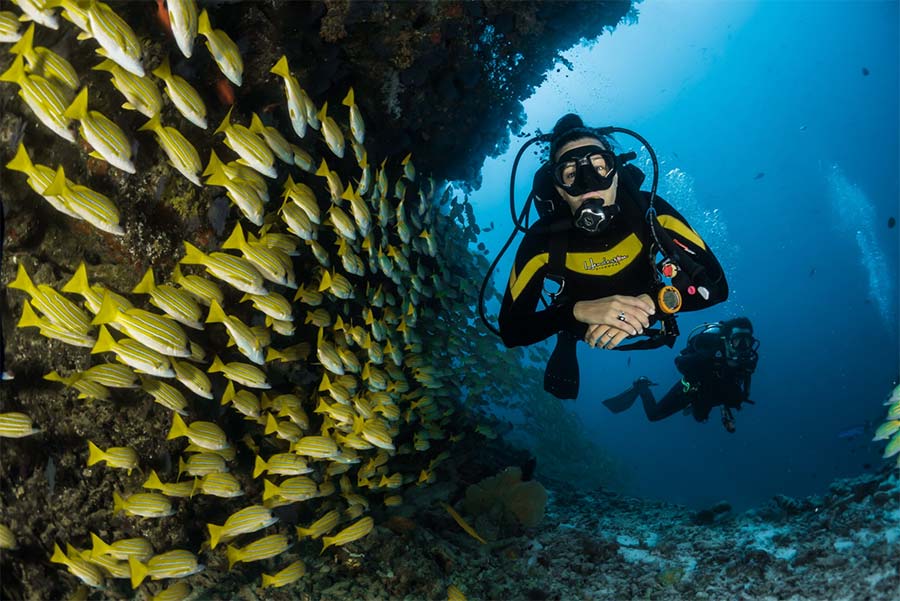
Coral reef infrastructures may look indestructible, but they are incredibly fragile - Even the smallest of knocks will break and destroy a coral. All species of coral are covered in a fragile membrane, which when touched will cause a perforation, exposing it to infection.
To help protect coral reefs and avoid damaging them while snorkeling and diving, maintain good buoyancy and underwater awareness at all times.
Make sure that your body, scuba and camera gear doesn't come into contact with corals, and keep all dive equipment (such as your octopus) tucked neatly away to stop it from touching the reef.
Experienced snorkelers and professional scuba divers can help whilst being good role models and showing future generations how to dive and snorkel with care.
2. Avoid or choose sunscreen wisely
Did you know that sunscreen has a detrimental effect on our worlds reefs? Alarmingly 14,000 tons of sunscreen ends up our oceans each year. The protective layer we use to shield ourselves from the suns harmful rays is full of chemicals which are contributing to coral bleaching and the decline of coral.
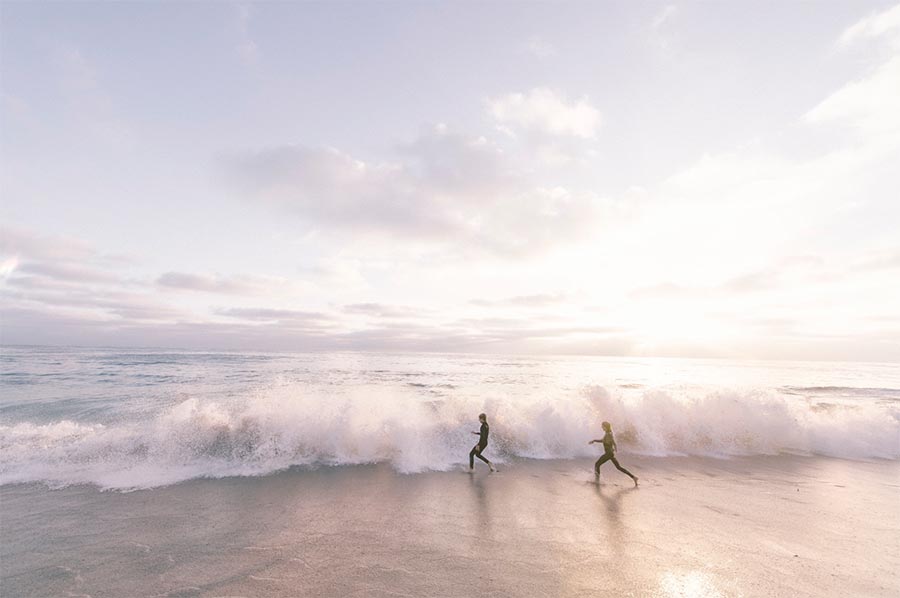
There are 4 common chemicals found in sunscreen which are known to harm corals; oxybenzone, octinoxate, butylparabe and 4-methylbenzylidene camphor (4MBC). When absorbed, these can lead to deformation, reproduction disruption, bleaching and ultimately the death of coral reefs.
So how can you protect yourself from the sun and help protect coral reefs at the same time?
Avoid using sunscreen which contain the other ingredients listed above. Water resistant mineral based sunscreen is better, as it will be more likely to stay on your skin and out of the water. Use a reef-safe sunscreen that has been tested as biodegradable, ensuring it will break down in a marine environment.
The most effective way is to cover up with UV clothing such as full length rash guards when in the sea. Taking the above steps will help us to keep coral reefs alive.
3. Be more sustainable
Global warming is having an enormous effect on coral reefs today. As the world heats up, so do our oceans. Even the slightest change in temperature causes reefs to turn skeletal white from coral bleaching. However, there are some easy everyday ways we can minimise our carbon footprint, and help protect coral reefs at the same time.
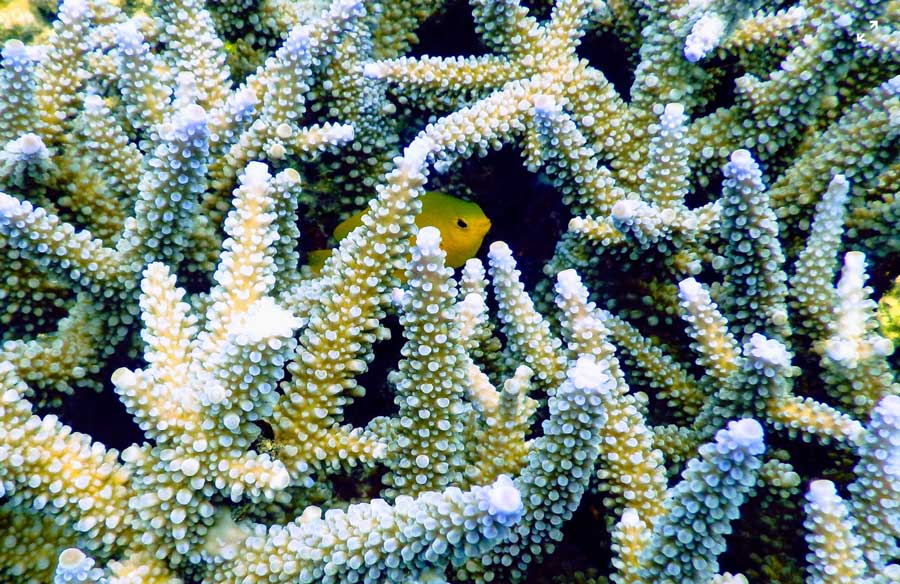
One of the biggest impacts to reefs is wastewater. Often flowing directly into the ocean, this run-off contains all kinds of rubbish and chemicals.
Help keep coral reefs alive by being more wise with your water consumption, turn the tap off and take shorter showers.
Choose biodegradable detergents and cleanings product that go down our sinks and drains, as these eventually end up in the ocean.
Take other steps such as switching to eco-friendly lightbulbs, plant trees, avoid pesticides, drive an energy-efficient car, and try to fly less.
All these little things contribute towards conserving the energy we use and reduce global warming to help protect coral reefs.
4. Avoid buying coral souvenirs
Coral has been a popular souvenir for many years, and is commonly used in jewelry. Pink and red corals called Corallium are particularly desirable, and are often carved and created into beautiful pieces which can fetch up to $20,000.
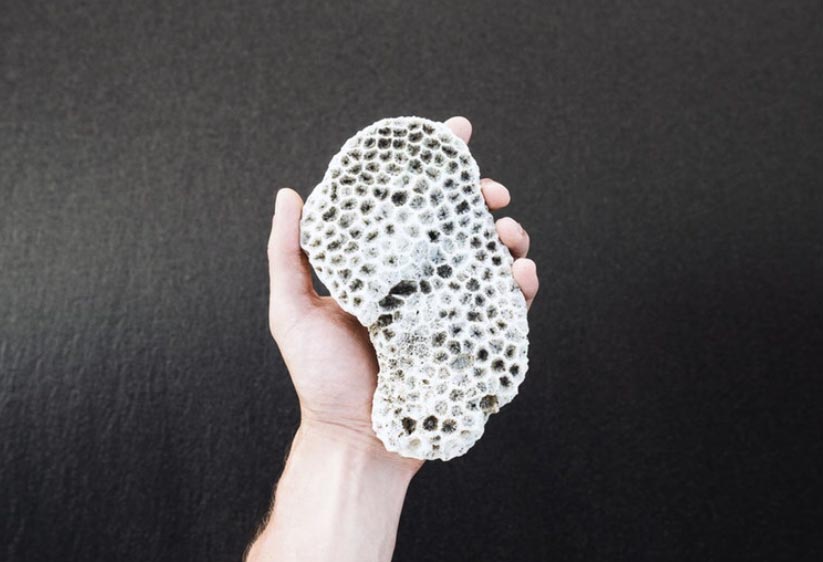
Although most Corallium used in jewelry and art is commercially grown and harvested, the removal of this species has reduced reproduction capabilities in the wild, meaning they are now in decline.
Corals grow at a very slow rate, and it takes decades for an entire reef to be produced. If harvested and extracted at a young age, the coral bed often struggles to recover.
Keep corals alive and help protect reefs by admiring them from afar rather than adorning your body with them.
5. Keep beaches and oceans clean
It is a well-known fact that our oceans are suffocating from plastic pollution. This has a direct impact on coral reefs. Not only does it affect water quality, but plastic causes physical damage to corals by tearing them and causing infection. It can also cause algae to grow, creating an imbalance in the corals, which stops reproduction.
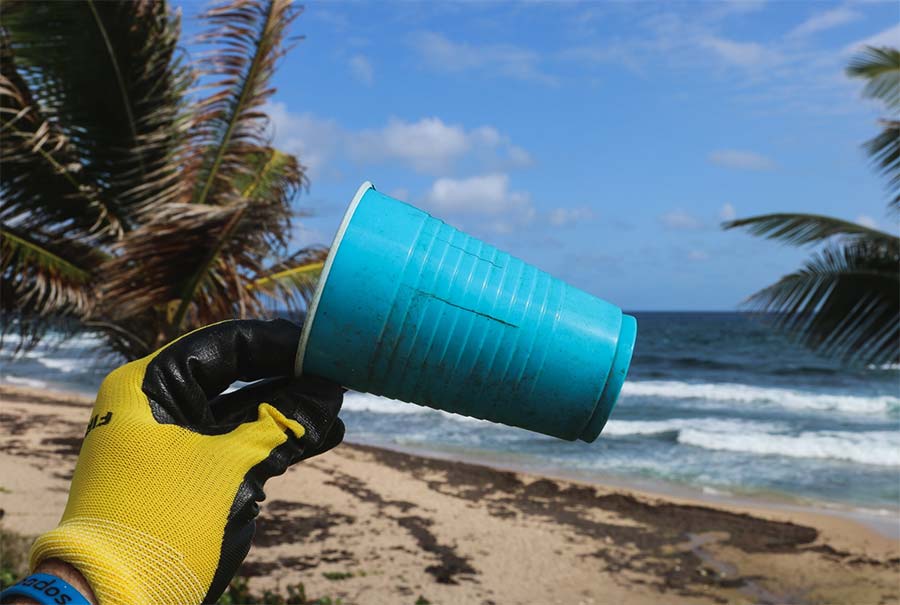
We can help by reducing our plastic usage and consumption, but also by getting involved and volunteering with beach and ocean clean-ups.
If you live by the coast, find out whether there are any local community initiatives in place to help with ocean clean ups. If you spot rubbish floating in the sea, be a responsible snorkeler or diver and collect it.
Lets all do our bit whenever we are in the ocean, and together we can help protect coral reefs from plastic pollution.
6. Support coral conservation with us
More than a quarter of the world's reefs have already vanished. Due to climate change, pollution, overfishing, and habitat destruction, almost a third of reef formations are under imminent threat of loss within the next three decades. Nevertheless, there is still hope.
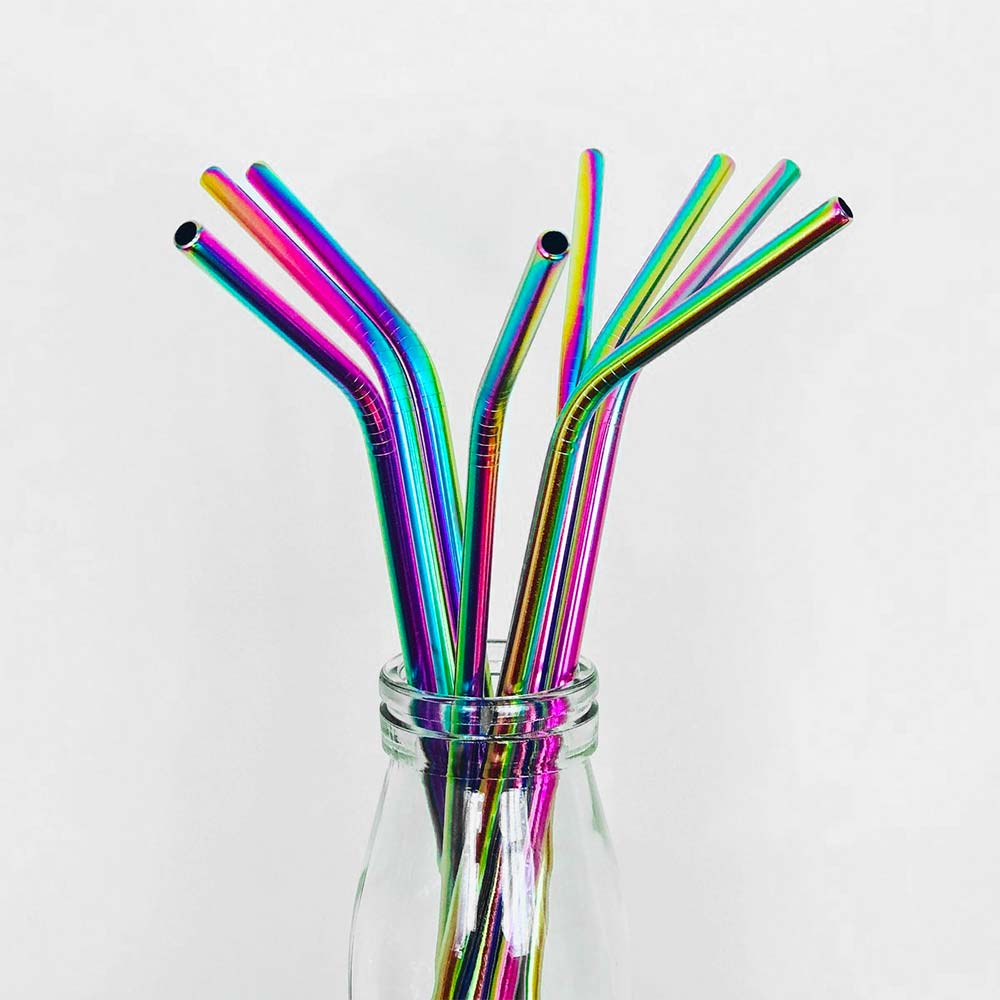
Here at Citrus Reef we are dedicated to giving back 15% of all our profits to support coral reef conservation.
If you’d like to help protect coral reefs then come and check out our exciting range of ‘help the reefs’ bracelets, necklaces, earrings & rings plus sustainable ocean gifts such as our awesome Rainbow Metal Straws to rid your life of plastic!
Shop Ocean Jewelry




